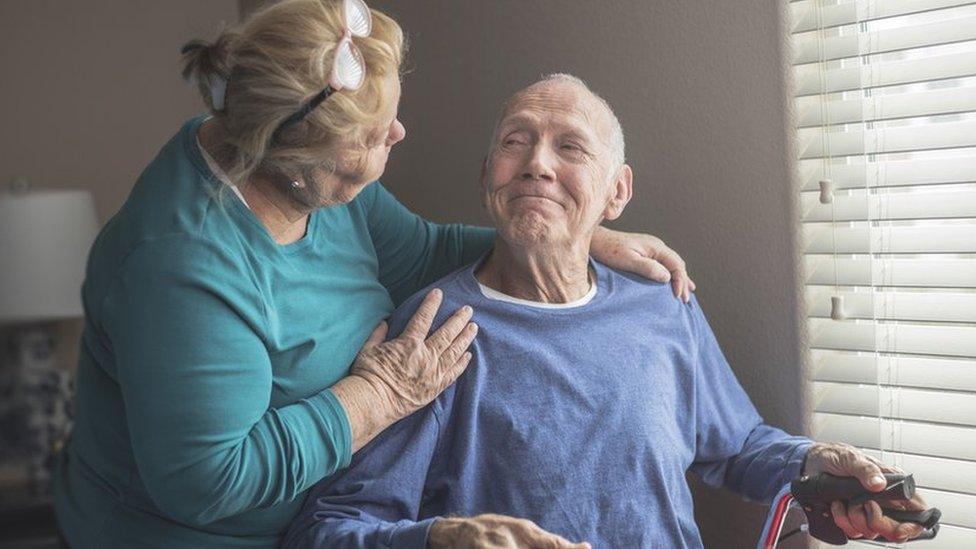End-of-life: How home nurses helped ease my husband's last days
- Published
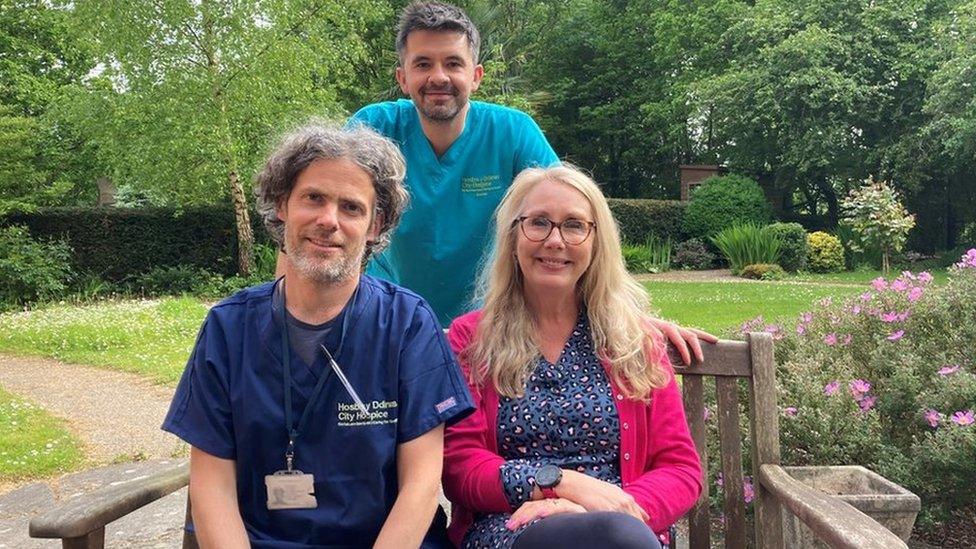
Eben Leonard met medical staff again who were welcomed into her family home during difficult times
He was a fan of rap music, and had an impressive church-like entrance to his home, which epitomised the loving family inside.
These were Allen Bryant's first recollections of Kevin Leonard, who died last year from cancer.
Kevin's wife Eben reminisced as if they were old friends - yet they were strangers until the nurse cared for her husband in his final weeks.
Figures show a rise in people choosing to receive end-of-life care at home.
Among these was cancer campaigner Dame Deborah James, who died earlier this week surrounded by her family after challenging taboos around the disease in her final months.
It is now a year since Kevin died, aged 51, with Eben thanking the nurses from Cardiff's City Hospice, and saying it is good to see them, despite the incredibly difficult times they experienced together.
It is the first time since Kevin died that Eben has been reunited with those who cared for him, and she is comfortable enough to be honest when they ask how she is.
"Struggling. Still really raw. The kids have gone to university, it's just a different kind of life now," she tells them.
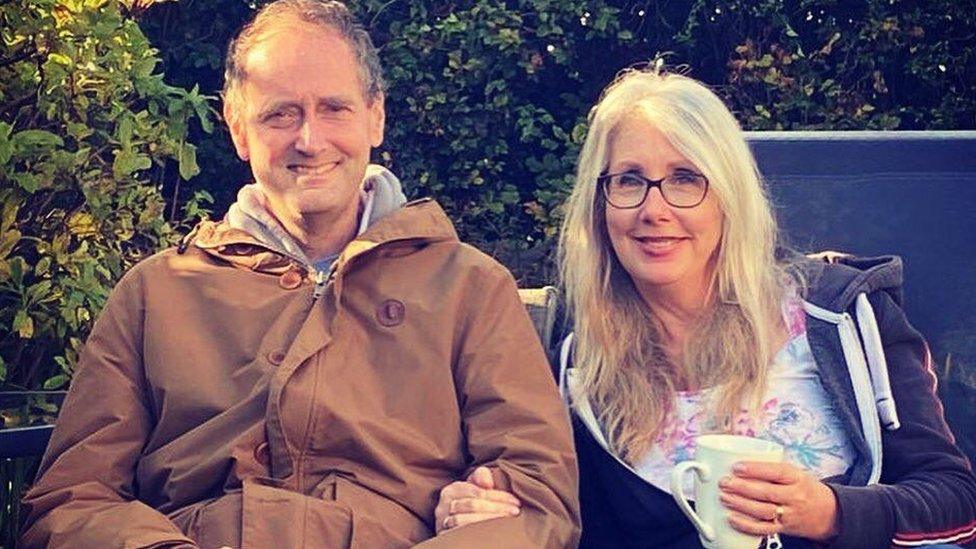
Kevin Leonard died aged 51 at home in 2021, surrounded by his family
Questions, though, are perhaps easier to answer after the one Kevin asked as he lay in Llandough Hospital, his cancer progressing.
"He said to me 'where will I be?' and I replied 'what do you mean?', I couldn't work out what he meant," she said.
"I then thought 'oh gosh, these are the awful questions, he knows what's coming and where is he going to have his final days?'... I said, of course, you are going to be with me."
At home seemed the most natural place, but for this to happen they would almost have to welcome new members into the family setting to make it as comfortable as possible.
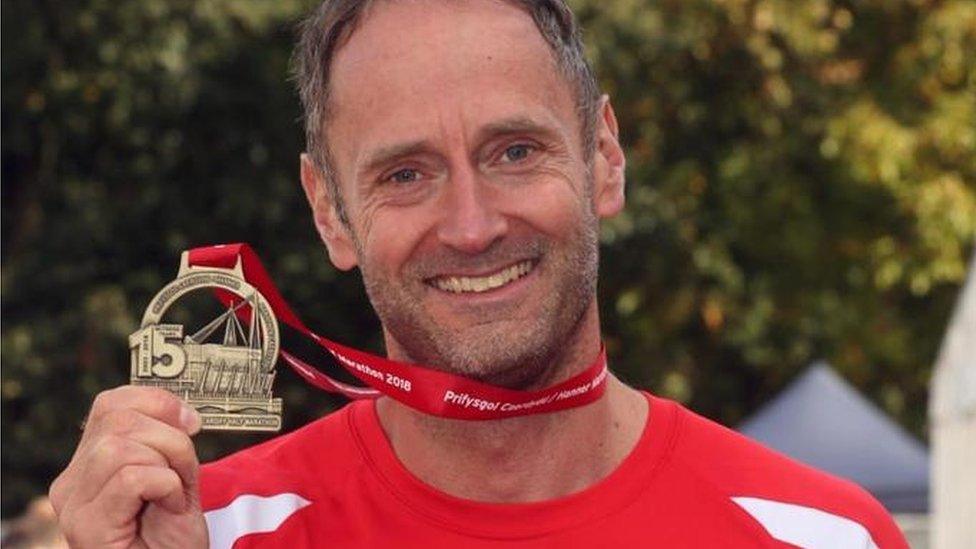
Kevin was an avid runner, often taking part in his weekly Parkrun
"We are always drawn in by people's homes, and their own things around them, and I think I was immediately complimenting you on your front door, quite church-like, a lovely entrance to their home," Allen said about his first visit.
"You were clearly a loving family, so welcoming, it was a pleasure to be there."
Despite the circumstances, he described "good memories" about the amount of support and love for Kevin, adding: "Also, of his healthy interest in rap music and football."
Eben quickly interjected "Cardiff City", her own mind going back to her husband's biggest passion.
Describing the help of the palliative care nurse, she added: "We saw Allen pretty much every day, or he called. He was a real safety net. You're going through this world of... it's just awful dark, dark times."
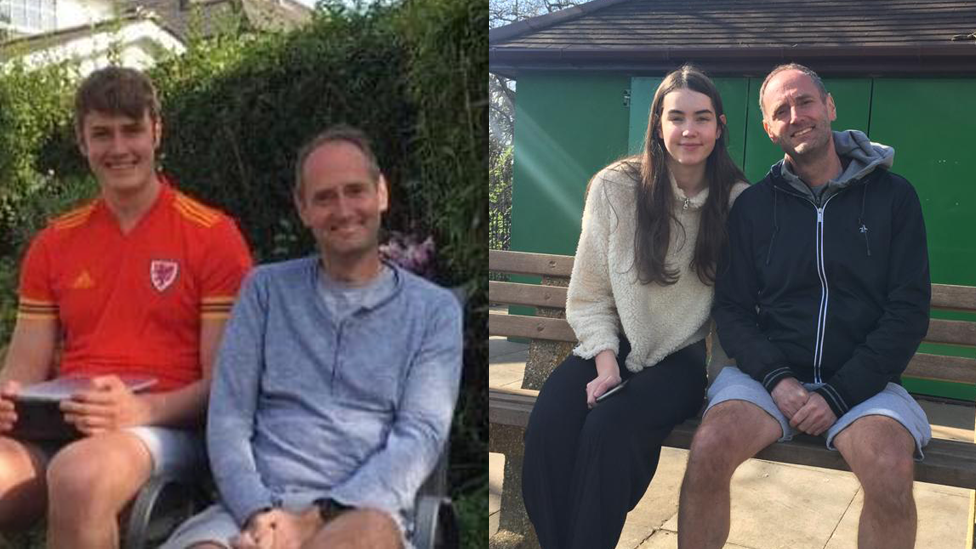
Eben said she believes it "meant the world" to Kevin to be around her, and their children Max and Mari in his final days
Allen helped with many difficult tasks, including going to pick up a Do Not Resuscitate form from the doctor's surgery.
"I thought 'I can't go and pick that up from the doctor's'. Even now that makes me feel really upset. That's what he wanted, he didn't want to be resuscitated."
There were also observations he could give sympathetically. Such as when Kevin was congested in the January, Allen suggested it was the disease progressing.
Eben said this came like "an absolute thunderbolt", adding: "I actually got into bed with Kev and pushed him over slightly, as we knew what was happening... and I just thought getting into bed with him, that's what we've done all our married life."
Allen said he felt "completely privileged" to care for Kevin, adding: "Intelligence and wit, very obviously great gentleness to him."
'It meant the world to him'
City Hospice figures show a rise in people choosing to die at home - from 59% of those it cared for in 2019-2020 to 70% so far this year.
Dr James Davies, a consultant in palliative care at City Hospice, believes the pandemic has changed people's decision-making, adding: "There are inherent challenges of being at home because you don't have a qualified staff nurse on site ... but I think for the majority of people, the negatives are far outweighed by the positives."
Talking about her husband, Eben simply says: "I think it probably meant the world to him".
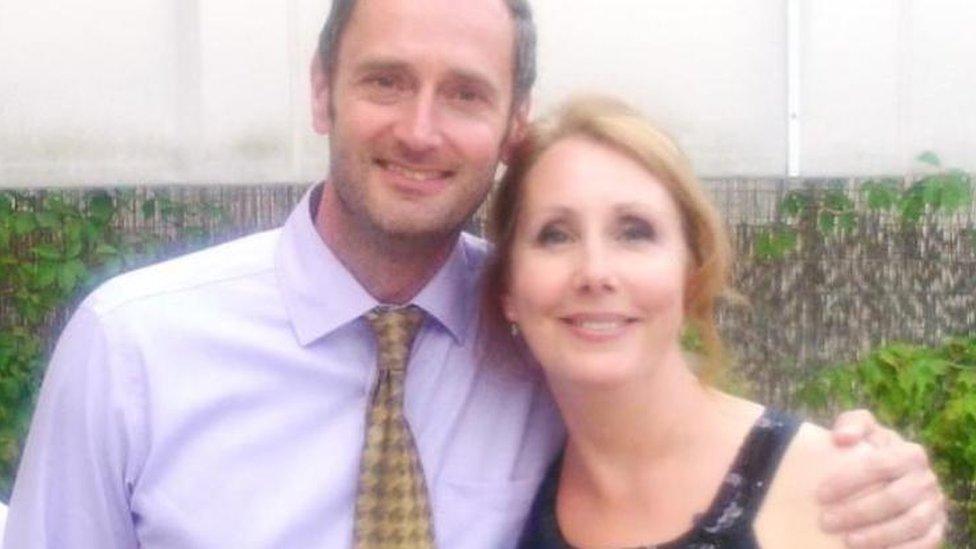
Eben was happy Kevin was surrounded by the warmth of his family in his final days
"We were just all there. The kids were there, and I think even though you don't want to talk about it, there comes a point where you need to talk about it, because often a person won't be able to speak at the end, and that's awful and awful to see... it was really good he was there with us."
In terms of home as a choice for people to spend their last days, she believes it is the most natural setting.
"If you look back at your life and are able to say you died at home next to my family, my wife pushing her way into bed, in the warmth of a family unit, I think that's all you want at the end of the day, to be surrounded by your loved ones and cared for," she added.

BBC WALES INVESTIGATES: The subjects affecting the lives of people in Wales
BROTHERS IN DANCE: The remarkable duo at the forefront of UK dance

Related topics
- Published29 June 2022
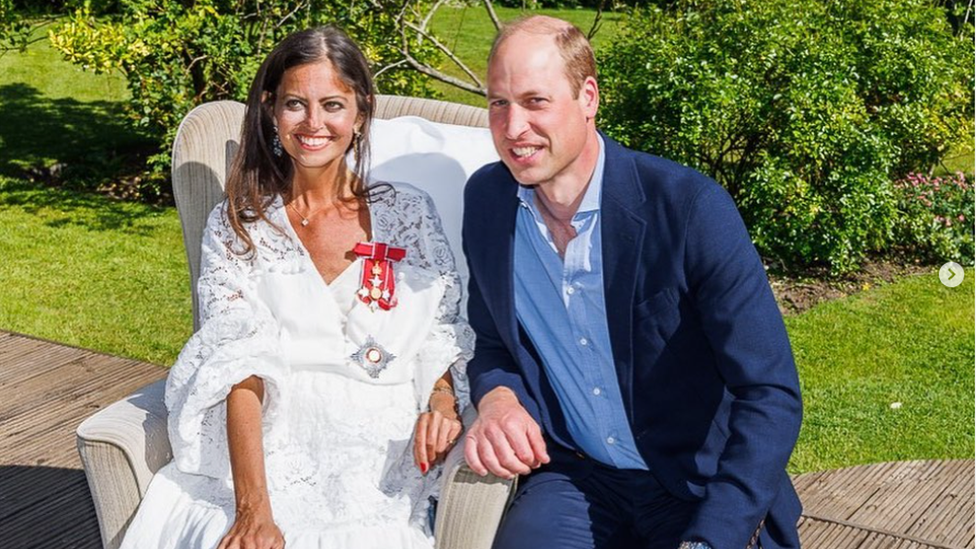
- Published25 November 2021
